|















|
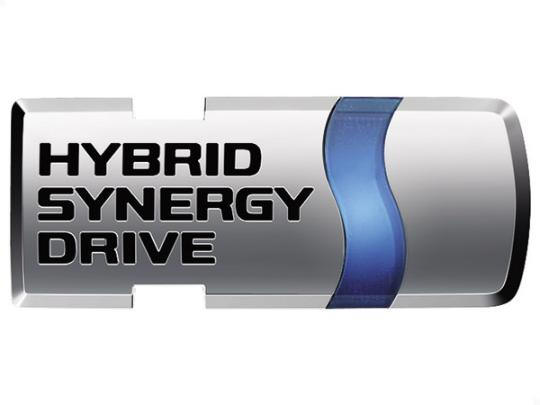 Hybrid
Synergy Drive is a seamless mix of electric motor and petrol engine. Each power
source complements the other. Individually petrol engines and electric motors
have serious disadvantages, but together they produce a unique "engine" capable
of astounding efficiency without sacrificing performance. Hybrid
Synergy Drive is a seamless mix of electric motor and petrol engine. Each power
source complements the other. Individually petrol engines and electric motors
have serious disadvantages, but together they produce a unique "engine" capable
of astounding efficiency without sacrificing performance.
How is this efficiency achieved?
Well, first you have to remember that standard internal combustion engines are
only efficient over a narrow power and torque band. In normal cars the engine
has to operate over a wide power and torque band. This is very inefficient. Also
when you stop the car, the engine keeps idling. This also wastes fuel.
The Prius allows its' engine to
operate at its' most efficient power and torque curve, by adding driving force
from the electric motor when more power is needed. Excess power from the engine
can also be used to charge the battery. The engine therefore runs at its' most
efficient speed and the electric motor compensates for the peeks and dips. When
you take your foot off the accelerator pedal, the engine is switched off. The
engine may still spin, but fuel is no longer supplied. When you press the
accelerator again, the engine switches on instantly. When you put your foot on
the brakes the engine shuts off and kinetic energy from the forward motion of
the car is converted by the motor (now acting as a generator) to charge the
battery. This energy can then be used again later, like when you accelerate hard
or go up a hill.
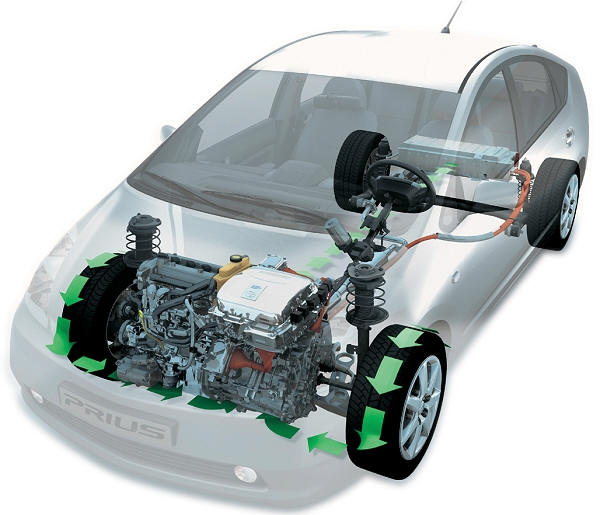
During regenerative braking,
kinetic energy from the wheels are used to turn a generator which charges the
battery
Operation of
Hybrid Synergy Drive
display is for
2003 - 2005 model. 2006+ model is the same, but higher resolution
|
Press
power button
|
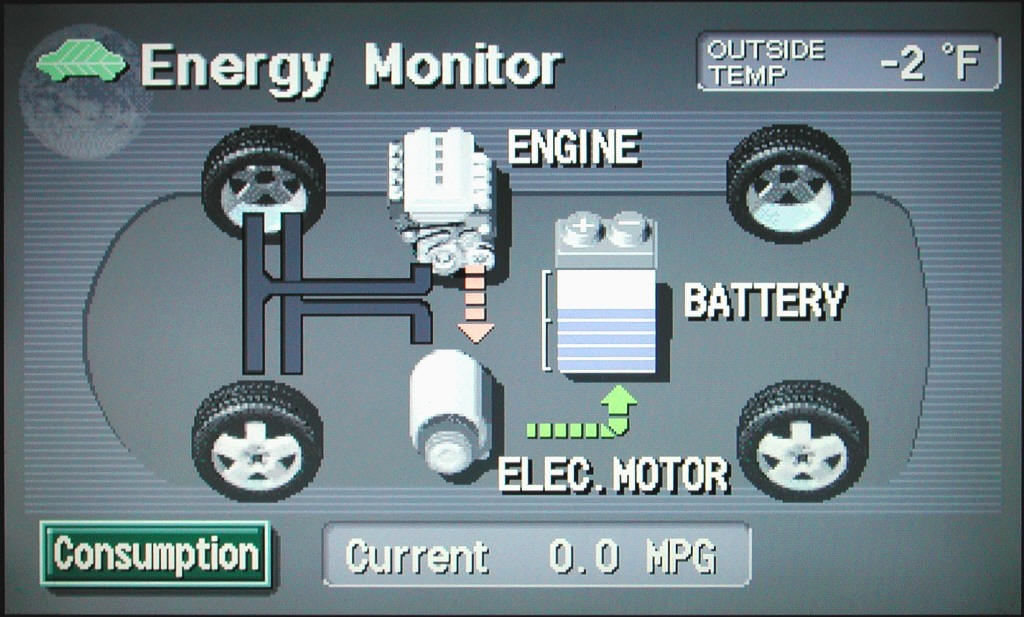 |
When you press the power button,
this display might come on depending on the temperature of the catalytic
converter. In this case the catalytic converter is cold and the engine is
running to heat it up. The engine spins the generator and the energy is put back
into the battery. Catalytic converters only work when they're hot. By preheating
the "cat", the Prius reduces emissions even it it means having to burn a
little petrol.
|
|
Startup
|
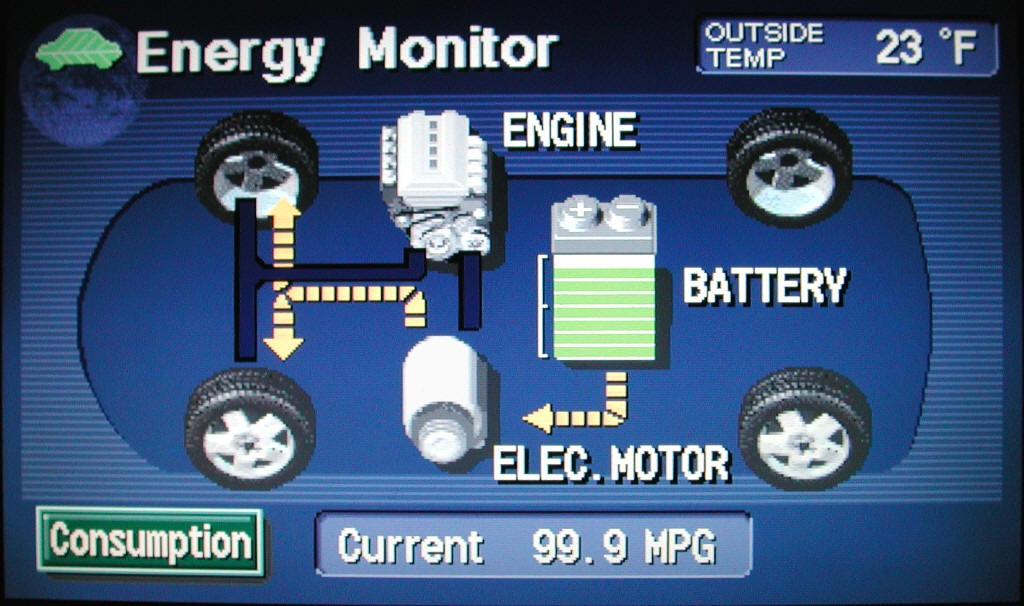 |
Pulling away slowly. Only the motor is driving the
wheels. Energy is drawn from the battery. This is EV mode.
|
|
Normal Driving
|
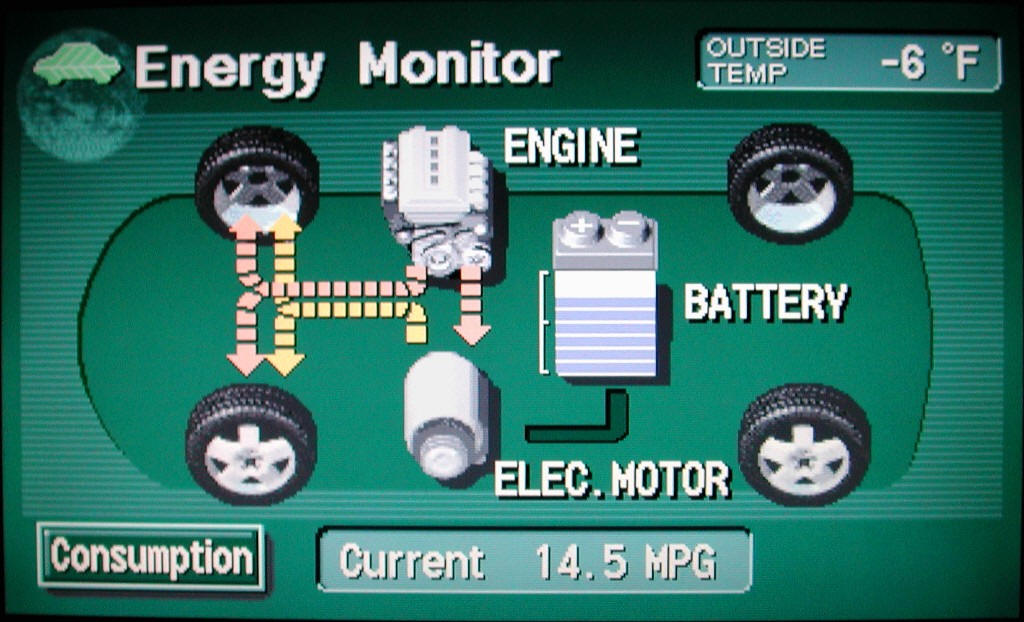 |
When you pull away initially and
at slow speeds, energy is fed from the batteries and the electric motor drives
the car. Depending on how hard you accelerate, the engine might come on for
extra power. Energy may or may not be drawn from the battery. It depends on how
hard you accelerate. |
|
Normal Driving
|
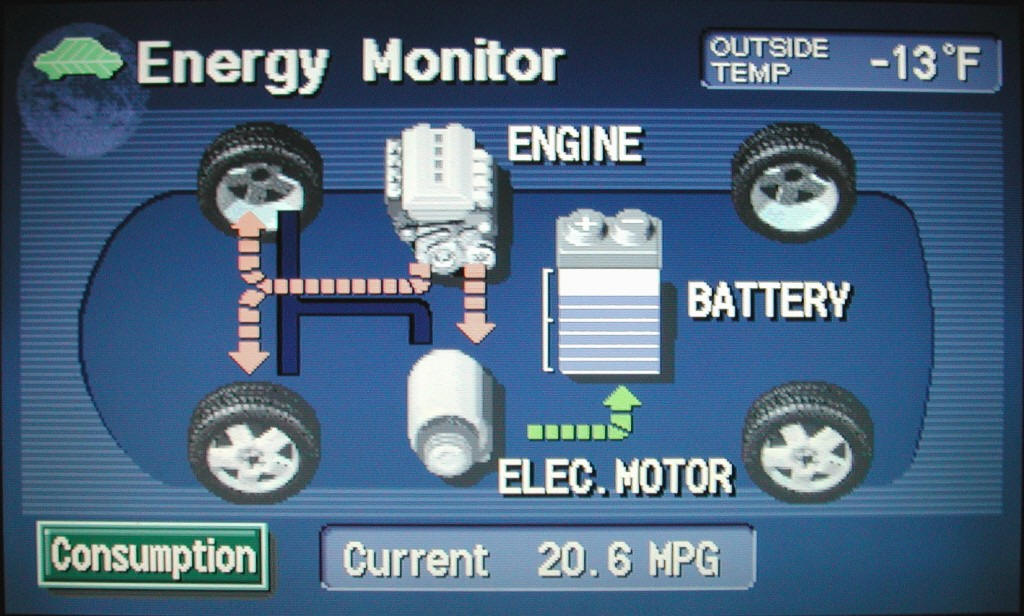 |
Cruising. Only the engine is
driving the wheels. The motor/generator is charging the battery. The engine is
running at its' most efficient RPM range. Excess energy is stored.
|
|
Normal Driving
|
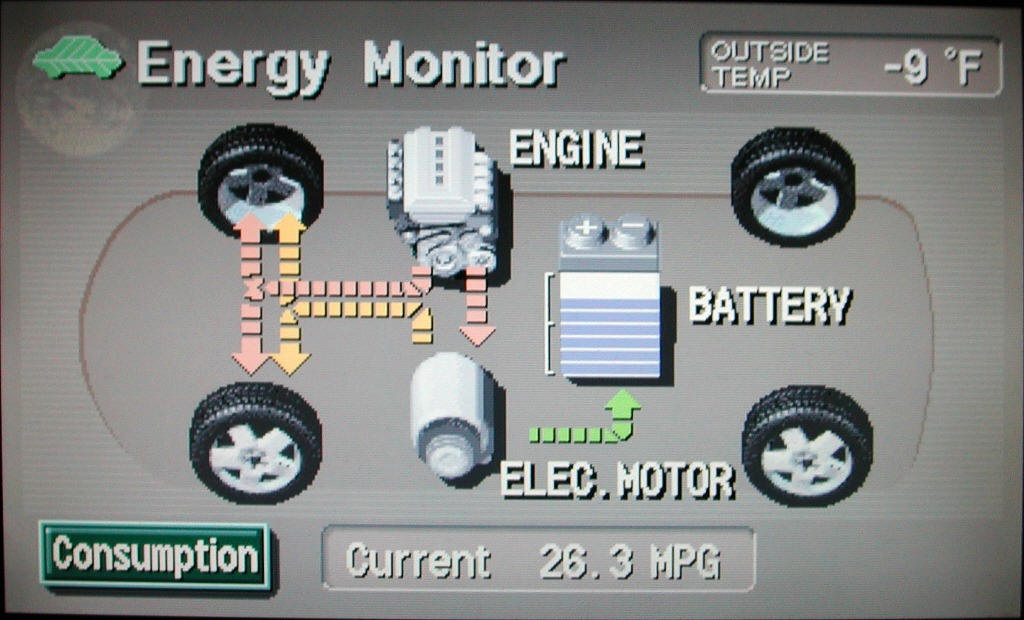 |
Mild acceleration. The engine is
driving the wheels and spinning the generator. Some energy from the generator is
sent to the battery and some to the motor to provide extra torque for brisk
acceleration.
|
|
Acceleration
|
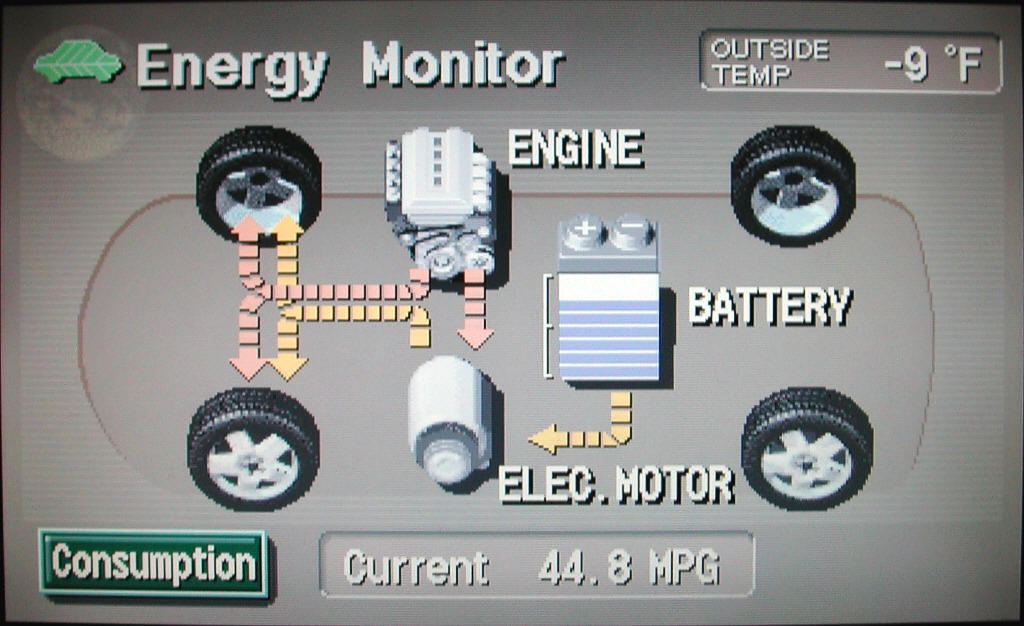 |
Hard acceleration or hill
climbing. The engine and the motor are driving the wheels. Energy is drawn from
the battery as well as the generator. Engine RPM is quite high.
|
|
Deceleration
|
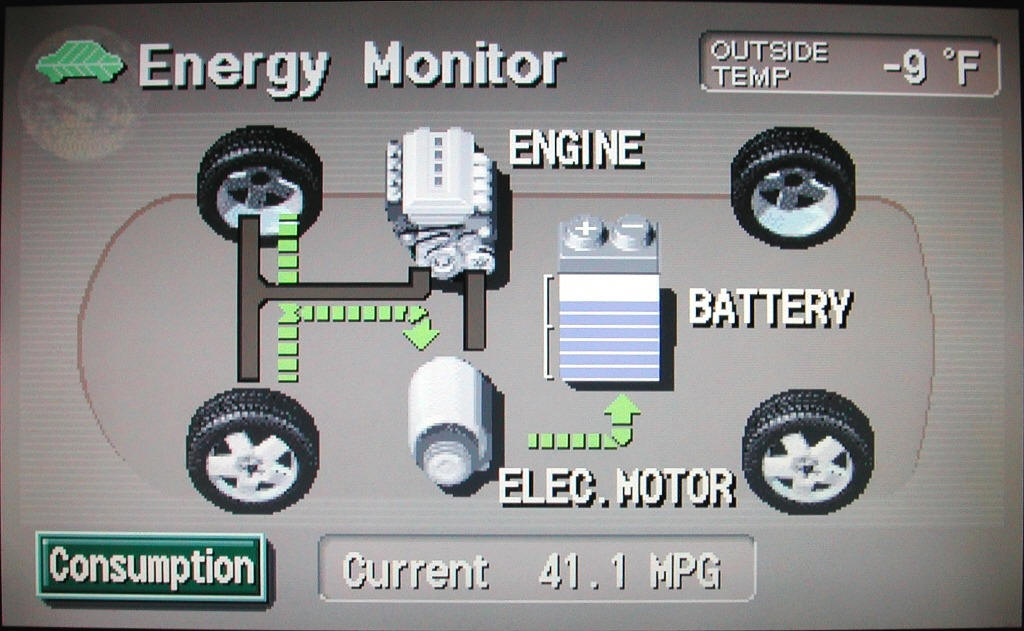 |
During deceleration energy is fed
back into the battery from the generator. If you take your foot off the
accelerator, the fuel to the engine will be cut off. The kinetic energy of the
car will then be put back into the battery via the generator. This is a type of
"magnetic" braking as the car is being slowed down by the resistance of
the magnetic field in the generators' coils. If the battery should be
come full during "regen" the Prius will switch to engine braking. |
| Stopped |
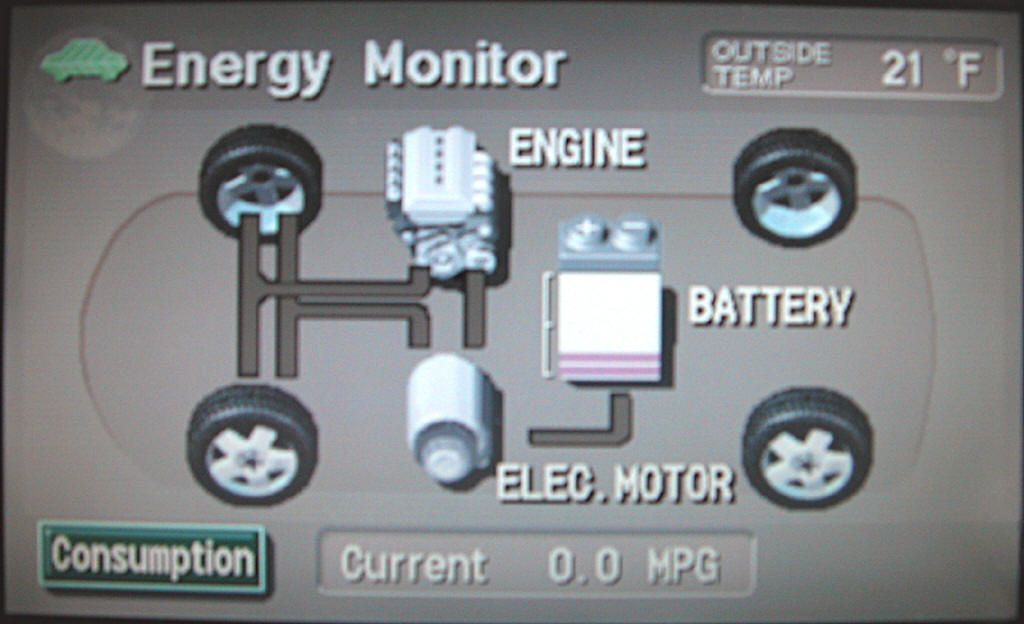 |
You're stopped or gliding.
|
|
